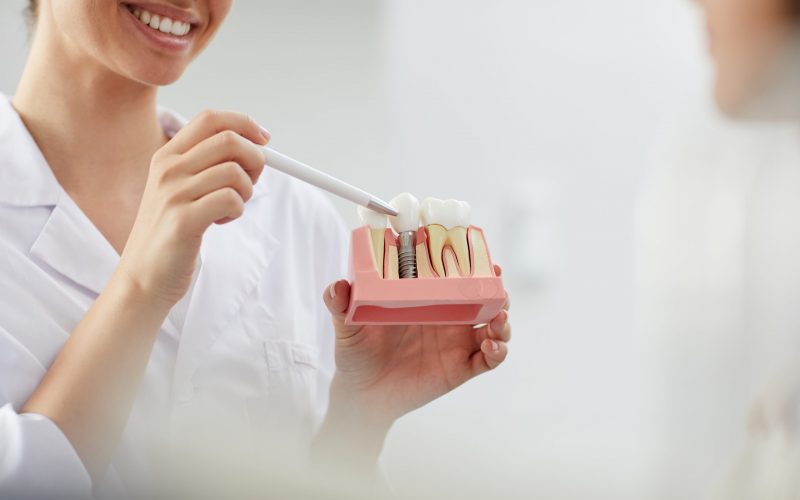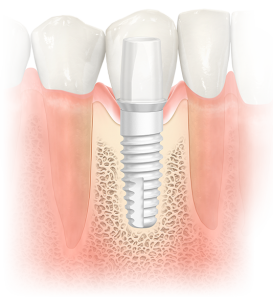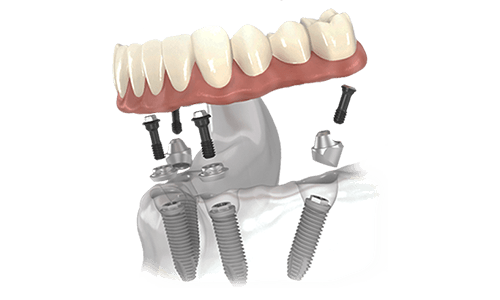Dental implants have been shown to last from 20 – 30 years. Different factors are involved in the longevity of dental implants:
– General health of the patient
– Oral hygiene and maintenance
– Pre-existing history of severe gum disease (periodontal disease)
– Smoking.
Failure to carry out meticulous plaque control could cause gum problems around dental implants in a similar way to gum disease around natural teeth.
The way that you maintain your dental implant is fundamental to the long-term success of the treatment, but there may be other factors that may affect the long term success of dental implants. Usually “risk factors” could be eliminated or reduced to a minimum. Your dentist will discuss any risk factors that might be significant in your individual case. The main ones are:
- Oral Hygiene; Complications are easier to appear in a person who has poor oral hygiene.
- A history of gum disease; this makes it more likely to get gum disease around the implant. Therefore any existing gum disease needs to be treated and brought under control before embarking on any dental implant treatment. The implant surgeon will assess the condition of your gums carefully before recommending implant treatment.
- Diabetes: Uncontrolled diabetes could affect the initial healing as well long term condition of the implant and the surrounding gum. You would be asked to bring your diabetes under control.
- Stress: A person with high stress levels are prone to have clenching or grinding problems, which can have a negative effect on dental implants.
- A heavy bite or tooth grinding (known as bruxism) could result in breakages of teeth or porcelain restorations and loosening of implants or bridges. You may be advised to wear a night bite guard if you are a heavy grinder.
- Smoking; the research demonstrates that smoking is a significant risk factor, Patients who are not able to give up smoking are not the best candidates for an implant treatment.


